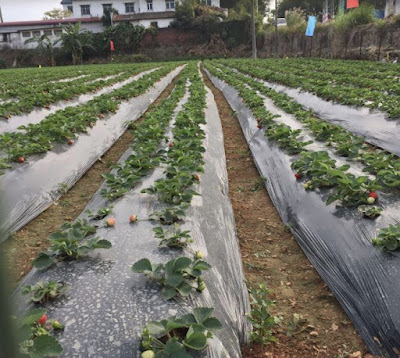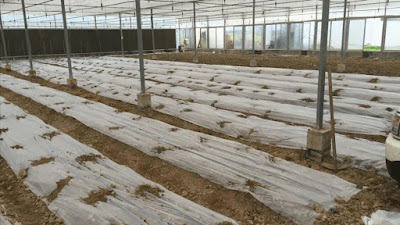Mulch film is a plastic film used for covering farmland. Almost all vegetable planting in facilities is covered with mulch. Even in open-field vegetable planting, mulching films are widely applied. There are many benefits of mulching. It can maintain fertilizer, keep moisture and increase temperature so as to increase yield. In the greenhouse, it can effectively reduce humidity and greatly reduce the occurrence of vegetable diseases and insect pests.
Most farmers have realized the fact that there are many benefits of covering mulch for growing vegetables. But there are too many types of mulch on the market, including our common common transparent mulch, black mulch, silver-black mulch, and reflective mulch. So what is the point of using various plastic films in planting vegetables, and how should we choose them in actual production, so as to avoid unnecessary economic losses caused by wrong selection and misuse?
Characteristics of various mulching films.
Let's talk about the characteristics and use methods of various mulching films.
1. Ordinary translucent mulch
This type of mulch film is the most familiar and used the most. The material is mainly polyethylene material. The biggest advantage is to increase the ground temperature. After covering, it can increase the temperature of the topsoil of about 5cm by 5-6 °C. Due to the increase of ground temperature, it can make Fruit vegetables, melons, and legumes should be marketed at least 5-10 days earlier than open field vegetables. In summer, the soil temperature under the film can reach 60 ℃, which can be used for soil disinfection. The disadvantage is that it is easy to breed weeds, and appropriate weeding measures need to be adopted.
It is precisely because of the good warming effect of this plastic film that it is mainly used for the production of solanaceous vegetables in early spring and winter vegetables. If it is used in other seasons, it will be detrimental to root growth due to the high ground temperature.
This mulch film also has the effect of preserving fertilizer and improving soil structure, because after covering with mulch film, the volatilization of nitrogen in the soil is reduced, the rainwater is prevented from being washed away, and the soil is kept in a better loose state.
2. Black mulch
In recent years, more and more black plastic film is used in vegetable production. Everyone must understand the advantages and disadvantages of black plastic film, and do not use it wrongly. Black mulch film is generally produced by LDPE, which is relatively thick and has a large tensile force, and can be used for at least two or three crops. One of the main features of black mulch is its good weeding effect. It is because of this feature that it is used more in the production of strawberries, watermelons and potatoes. During the growth of strawberries, a large number of weeds will grow, and herbicides cannot be sprayed, hoeed or pulled. Grass is more unrealistic, so the best choice is to use black mulch.

Another feature of black mulch film is that the soil temperature will not increase significantly after mulching and even cool down by 2-3 ℃. The data shows that in the planting of summer and autumn watermelon, the use of black plastic film can increase the yield by about 30% compared with the ordinary light-transmitting plastic film.
3. Silver black mulch
Silver-black mulch is also called reflective film. One side is silver and the other is black. It is mainly made of PE material. This mulch has strong functionality and high price. It is mainly used for plots with many pests, especially aphids. When using, the silver side is facing up and the black side is facing down. The silver side is reflective and can avoid aphids and thus reduce the spread of viruses. The black side can reduce the low temperature by 4-6°C.
Silver black mulch film is generally used in summer vegetable production to provide heat-proof cultivation for vegetables and form a good growth environment. It is called the umbrella of summer melon and vegetable cultivation.
Therefore, in the cultivation of vegetables or other crops, we use different mulches according to our own demands. If the pest damage is serious, it is best to use the silver-black mulch, and the grass damage is particularly serious. Mulching is also the cheapest.
This article is from the Internet or contributed by netizens. If it violates your rights, we will delete it as soon as possible.









